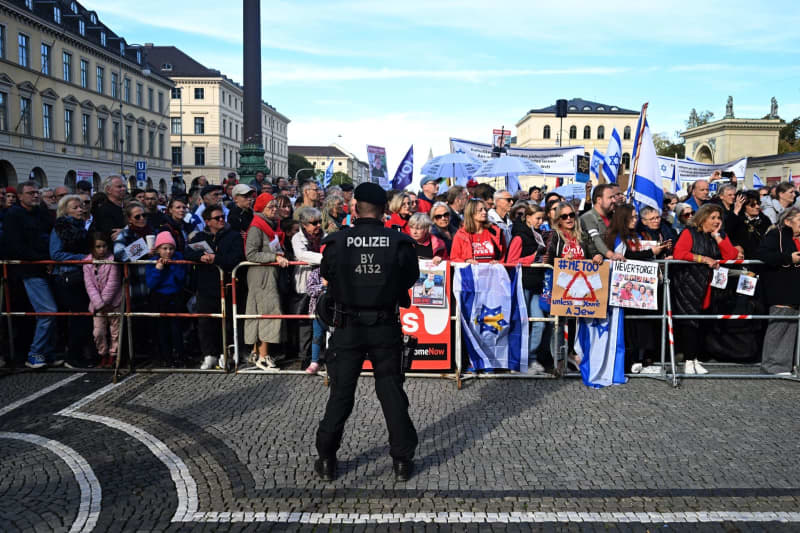On the anniversary of the October 7 attacks on Israel and the subsequent war in Gaza, multiple protests took place across Germany, reflective of the deep divisions surrounding the ongoing conflict. Major cities such as Berlin, Düsseldorf, Hamburg, and Munich witnessed large gatherings, some of which descended into violence. In Berlin, an estimated 3,500 demonstrators participated in a rally dubbed “Demo against genocide in Gaza” — significantly surpassing the 1,000 individuals who had initially registered. The event, which began in the diverse Kreuzberg neighborhood and wound its way through areas with substantial Arab communities, was marred by clashes, as some protestors reportedly attempted to breach police lines and threw objects at law enforcement. Authorities intervened, citing concerns over public safety and the commission of criminal offenses among the crowd.
In stark contrast to the pro-Palestinian rallies, a pro-Israel demonstration titled “Together against the Crimes of Hamas on Israelis and Palestinians” was also held in Berlin’s Mitte district, with about 500 expected participants. Ricarda Louk, mother of Shani Louk—who was among those taken hostage during the October 7 attacks—spoke to the media about the violence, stating that it was a brutal assault on civilians that should not be equated with the casualties of war. She strongly asserted that Israel did not seek this conflict but was compelled to respond to an unprovoked attack that claimed the lives of approximately 1,200 people and took around 250 hostages. The aftermath of the attack has sparked intense retaliatory operations by Israel, which a Hamas-run health ministry claims have resulted in over 41,800 deaths in Gaza, although these figures remain unverified.
Reflecting on the personal toll of the tragedy, Ricarda Louk recounted her grief, explaining how the memories of her daughter flooding back have made it difficult to regain trust in Arab communities. Despite her pain, she expressed hope for eventual reconciliation. Her comments highlight the emotional turmoil faced by families affected by the ongoing violence, as well as the broader societal fractures exacerbated by the conflict. In a significant turn of events, the struggle also manifested through acts of vandalism, such as graffiti targeting the CDU, Germany’s conservative opposition party, underscoring the heightened tensions surrounding the issue.
Simultaneously, in Munich, a commemoration event titled “365 Days – Munich against Anti-Semitism” was organized, attracting hundreds of participants who displayed Israeli flags and banners. This rally was part of a larger initiative uniting over 100 cultural, political, and religious organizations aiming to combat anti-Semitism and advocate for the release of hostages. While the organizers envisioned turnout in the thousands, they faced a counter-demonstration led by “Palestine Speaks Munich,” symbolically situating the two protests within close proximity to each other and demonstrating the polarized views on the conflict. Police deployed hundreds of officers to maintain order at both events, signifying the heightened concern over potential escalations.
The gatherings served as vivid illustrations of the dual narratives shaping public perception in Germany, where expressions of solidarity and grievances are often at cross-purposes. The pro-Palestinian protests emphasize the dire humanitarian situation in Gaza, while the pro-Israel demonstrations focus attention on the past aggressions by Hamas that prompted the current military response. Amid these events, communal prayers and vigils were also observed, particularly in areas with significant Jewish populations, indicating an ongoing commitment to remembrance and resilience within the impacted communities.
As these protests unfolded, the broader societal implications of the conflict became increasingly apparent. The need for dialogue and understanding, amidst a backdrop of escalating violence and entrenched narratives, highlights the challenges facing communities both in Germany and across Europe. The responses to the October 7 attacks have ignited debates about morality, justice, and the complex nature of victimhood that transcends geographical borders. The hope remains for a future where reconciliation is possible, as citizens navigate the fraught landscape of competing narratives and lived experiences in an era marked by conflict.

